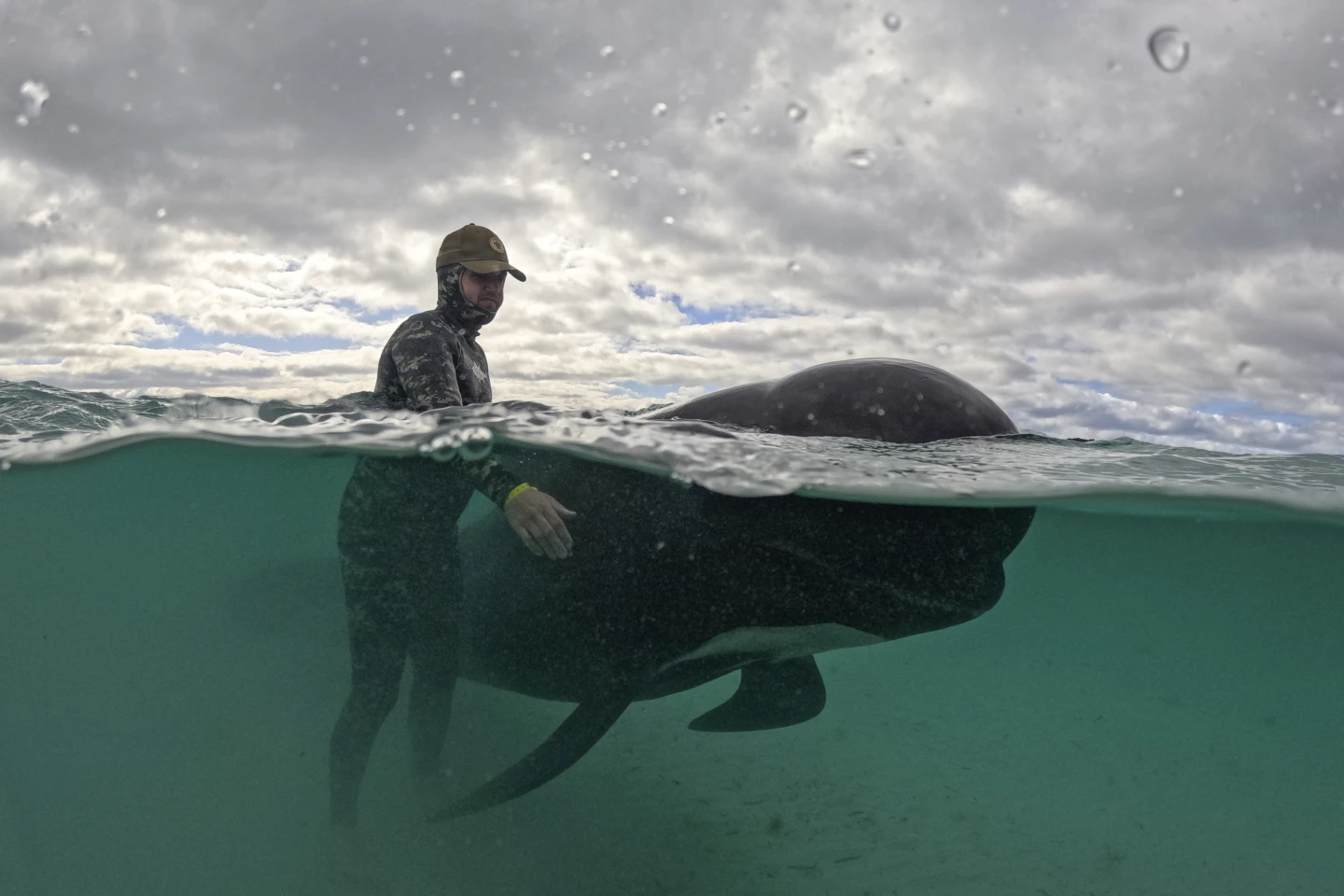[social_warfare]
Unraveling the Mystery of Australia’s Mass Whale Strandings
Under the blazing sun of Western Australia, the shores of Toby Inlet in Geographe Bay became a somber scene last Thursday as a pod of 160 long-finned pilot whales found themselves ensnared in the shallow waters.
As the local community and wildlife teams rallied together in a desperate rescue attempt, this incident adds yet another chapter to the perplexing phenomenon of mass whale strandings—a phenomenon that continues to puzzle scientists and tug at the heartstrings of animal lovers worldwide.
The mass stranding occurred less than 250 kilometers south of Perth, covering a span of approximately 500 meters of shoreline. Local authorities, along with scores of volunteers, worked tirelessly to aid these majestic creatures, striving to shepherd them back to the safety of deeper waters.
Despite their efforts, at least 26 of these whales succumbed to the ordeal. Pia Courtis, a spokesperson for the Department of Biodiversity Conservation and Attractions, remarked on the tragic nature of these events and the community’s spirited response to help these marine giants.
There are a further 20 whales in a pod about 1.5km offshore. Another pod of about 110 animals are together closer offshore. https://t.co/H26PrW3f2o
— Shark Safety WA (@SharkSafetyWA) April 25, 2024
The Science Behind the Stranding
Pilot whales, known for their strong social structures, often follow their podmates, even if it leads them into danger. This characteristic is believed to contribute significantly to the frequency of their strandings. “They’re highly sociable creatures, which can sometimes be their downfall,” explains marine biologist Dr. Helena Grant. “If one or two whales venture too close to shore, it’s likely the entire pod will follow.”
Research suggests various potential causes for these strandings, including navigational errors, viral pathogens, or even disturbances from underwater noise pollution due to human activities, which can disorient the whales’ sensitive sonar navigation. While definitive answers elude the scientific community, each stranding provides critical data to help unravel this mystery.
Recurrent Tragedy
Mass strandings are not new to Australia or its neighbor, New Zealand, with notable incidents recorded over decades.
The largest recorded stranding in Western Australia before this was in Dunsborough in 1996, where 320 long-finned pilot whales beached themselves, and a significant rescue effort managed to save nearly all but 20.
These recurring events underline a grim reality and a pressing need for research and preventive strategies.

The immediate effects of such strandings are heartbreakingly visible on the beaches but extend far beyond the physical location. Economically, they mobilize significant resources for rescue efforts and subsequent scientific studies.
Ecologically, they impact marine biodiversity and can disrupt local marine environments. Socially, they stir local and international communities, drawing volunteers and media attention, which helps raise awareness but also necessitates careful management to ensure the well-being of both the whales and human participants in rescue efforts.
As we witness these gentle giants struggle on our shores, it’s a stark reminder of the intricate connection between human activities and marine life. Each stranding event, while tragic, pushes us to reflect on our environmental responsibilities and the urgent need to address global marine health issues. It’s a call to action for not just conservationists but all of us, as stewards of the planet, to foster a more sustainable coexistence with the natural world.
The mass stranding of pilot whales in Western Australia serves as a poignant reminder of our enduring challenge in understanding and protecting marine life. As investigations continue and researchers gather more data, one can only hope that these tragic events become a catalyst for change and a deeper understanding of the delicate balance that governs our oceans.
Until then, the community’s spirit in responding to these incidents continues to reflect our collective passion and commitment to preserving our marine counterparts.
